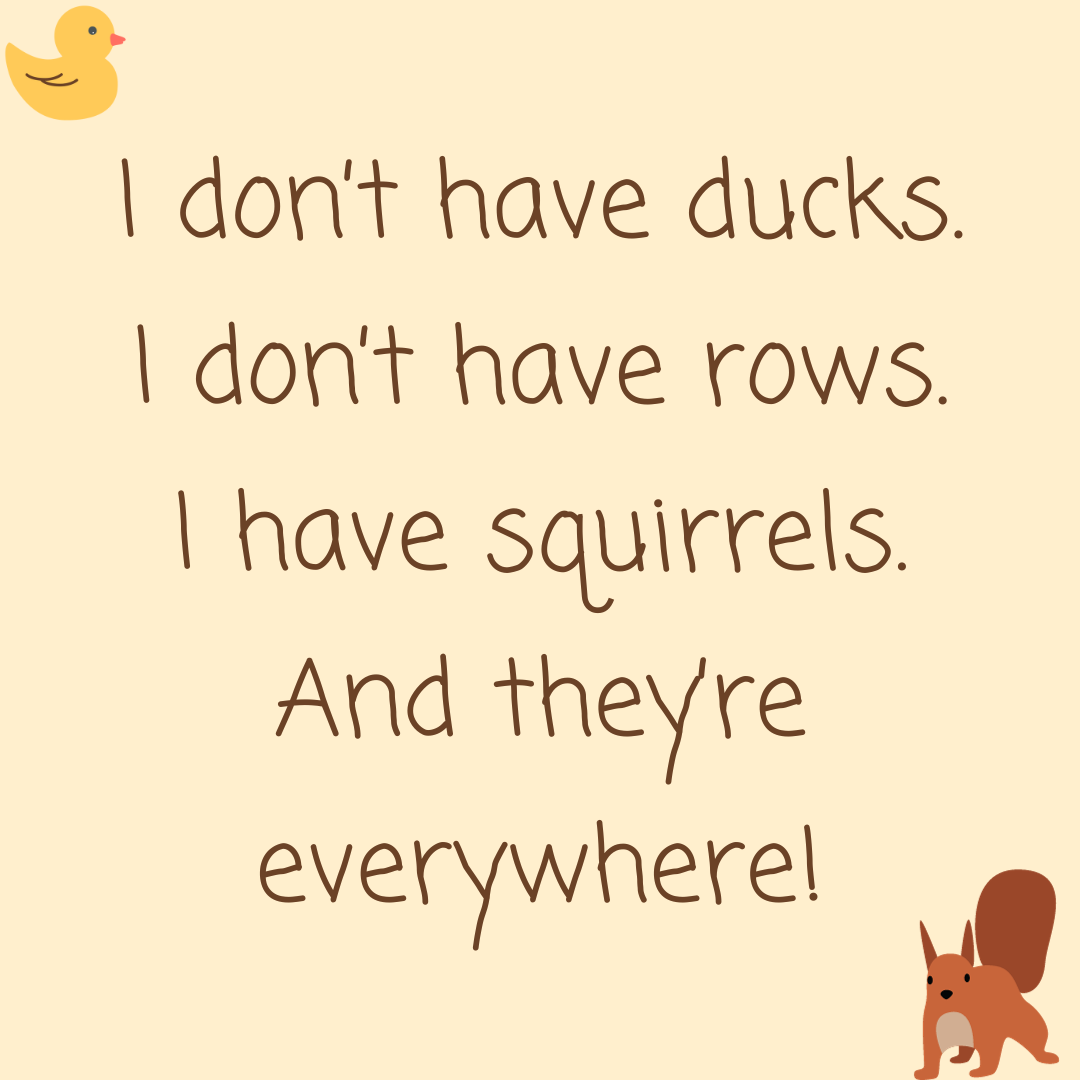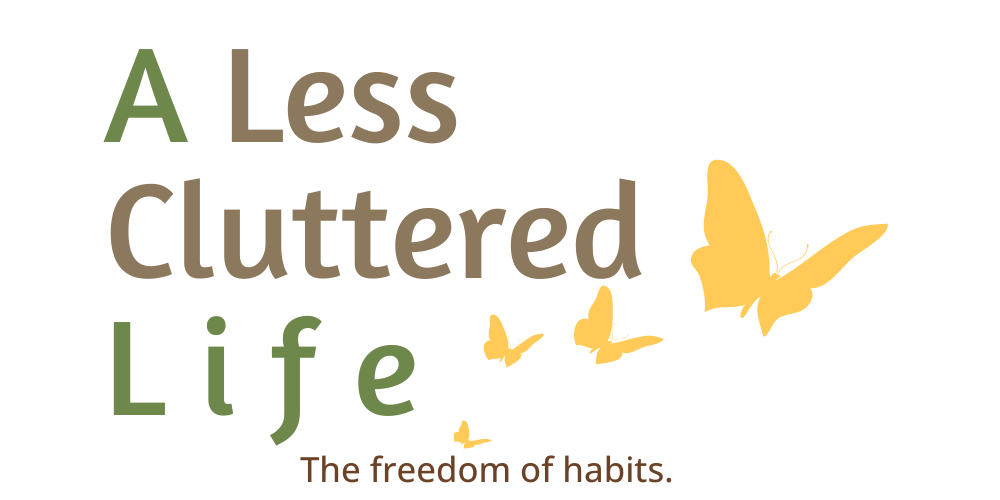|
by Susan McCarthy If you’ve been procrastinating over decluttering tasks, it’s time to look at your reasons for your delay. In some cases, the solution to breaking through your delays is making decluttering a less boring and tedious task. You’ve been saying that you were going to declutter your home for a while. But, well, one thing after another comes up. And then, of course, you do need some downtime, so you’ll have more energy to focus on your home. However, you’re starting to suspect that it’s not just your schedule that’s been in the way of your intentions to organize your home. You’re thinking that maybe, just maybe, you’re possibly, well, procrastinating. What Is Procrastination?For a long time, if I kept putting off a task, I didn’t call it procrastination. After all, I wasn’t lounging around doing something. Obviously, I was busy and didn’t have the time for those delayed tasks. Until one day it occurred to me that just as I chose to work on certain tasks, I could also choose to work on the tasks I’d been putting off. But I wasn’t. That’s when I faced the harsh reality. I was procrastinating. When I investigated what caused procrastination, I learned that it was a way of coping with unpleasant emotions. I hadn’t expected that answer. But just as I sought out a sweet treat after a difficult day, procrastinating helped me dull the need to deal with a negative emotion. I was focusing on my feelings in the now rather than the benefits of working on a task. Why We ProcrastinateThe tricky thing with procrastination is that we do something while putting off the activity we told ourselves we should do. Author Gretchen Rubin has stated something to the effect that work is the greatest form of procrastination. And, let’s face it, the task we are working on feels important…otherwise it wouldn’t be a compelling distraction. So, why do we procrastinate? You may have an unhelpful rule connected to the postponed task. You may not realize that you have negative thoughts about the task. Those unhelpful rules may have been with you for so long that you don’t even notice them…they just zip through your mind whenever you think about that activity that’s been on your to-do list for far too long. In connection to decluttering, what might these unhelpful rules be?
How to Overcome Procrastinating about DeclutteringI’ve noticed that when I go to do some tasks that I’ll feel waves of exhaustion. It never occurred to me that was my emotions. If I wanted the task done, I’d push myself to complete it…even though it felt as if I was slogging through mental mud. The times I allowed myself to do another activity, the exhaustion would lift. Obviously, I wasn’t physically tired! Instead, the procrastination activity lifted the emotions connected to the task I was avoiding. So, how do you overcome procrastination - One, notice you’re procrastinating without judging yourself. Imagine you’re talking to a friend. What would you say to them? “Oh, it looks like you don’t want to do that.” Two, be kind to yourself. You don’t want to feel horrible about feeling horrible for procrastinating. Note that you are uncomfortable about the decluttering task before you. Three, tell yourself that you won’t procrastinate. Instead, use one of the techniques below to modify the task. Four, when you’re done, reflect on the effectiveness of the modification. If what you tried didn’t work (you still struggled to declutter), try something else next time. How to Modify Decluttering TasksThese techniques can work best with tasks that you find boring. And if you’re overwhelmed by how much you need to do, these modifications can help bring that project down to a manageable size. Make the task shorter. If you’re thinking that you must keep at the task until it’s done, you may dread it. You may be thinking that the activity will take much longer than it will…but you don’t know that until you do the task. If you think the task will take you an hour, then plan to work on it for 30-minutes. If you still can’t muster the motivation to get to work, divide the time even further. You may balk at the idea of working for just five minutes, but five minutes is better than zero minutes. And, once you start, the task may not seem as horrible as you thought it would be. Build in breaks. Instead of telling yourself that you don’t deserve a break until you’re done (so not motivating!), give yourself a five-minute break every twenty or thirty minutes. Set a timer so you don’t extend the time of your break. Cue yourself with technology. You can not only use the timer on your smartphone to tell yourself to take a break or stop but you can also set an alarm that encourages you to start. If you’ll be working for 30-minutes or more, you might want to set an alarm that warns you that you’re nearing your end time so you can clean up. Set a different song so you can differentiate between your ‘clean up’ and ‘done’ times. Plan the actions. If you don’t know where to start or how to proceed, list the steps that you know you’ll have to do. Even if you fill the page with actions, you’ll see that you do know what to do and in what order. (Putting each action on small sticky notes allows you to shift the order.) Make a detailed to-do list. One of the best parts of a to-do list is checking things off! Break your task into very small actions so you’ll have lots of opportunities to reward yourself by crossing tasks off the list. So, if you are decluttering your kitchen, break it down into Little Spaces…not just cabinets but each space in each cabinet. Rate the task. How much effort does the decluttering task feel like it will take? On a scale of one (easy) to ten (horrendous), where would you place this task? What could you do to bring down the score by two or three points? Use the ideas in this list. Pair the task with something more pleasant. Could you listen to music, an audio book, or a podcast while decluttering? Could you chat with a friend on the phone? If you and a friend are both putting off chores, you could do a video chat where you both work on your individual tasks while chatting. And how about only allowing yourself to listen to that audio book when you are decluttering? Pair the task with an obligation. Maybe you’re being a good friend and you’re on the phone (again), listening to your friend’s woes. While making soothing and encouraging sounds, declutter. Give yourself an incentive for finishing. Tell yourself that you’ll allow yourself time on Instagram or time to watch that show you really like after you work on your decluttering project for 15-to-30-minutes. Add in variety. Make this the last option that you try. Zigzagging to an assortment of tasks and locations can leave you feeling busy…but at the end of the day, you might not see the progress you would if you stayed in one location. To try this method, instead of devoting 30-minutes or an hour to decluttering kitchen cabinets, select three small and specific actions that are a bit different or at least in different space or rooms. For example, you declutter one shelf in a kitchen cabinet for 10-minutes, then sort the day’s mail for 10-minutes, and then gather and carry old magazines out to the recycling bin. If you have more time to work, you could rotate through three actions that will take slightly longer to complete. Remember that Decluttering Is a Skill You Can DevelopIf you haven’t had much experience with decluttering or if you’ve decluttered in the past only to watch the piles return, know that decluttering is something that you can learn to do. You’ll be changing your mindset from one that holds onto things to giving yourself permission to release items you no longer use, need, or like. And, as you may have noticed from the techniques listed above, decluttering involves creating habits and planning to do the work. If you think that you’ll just want to declutter someday, you may be waiting for a long time! Instead, break down the actions into manageable sized steps and schedule time to take on your task. And if you are struggling to make decisions about your stuff, know that the more you do this, the better a decision-maker you’ll become. What If You Still Feel Stuck Maybe you aren’t procrastinating. Telling yourself that decluttering is boring, could be your way of ignoring another issue. Perhaps you need to pay attention to what is really holding you back from decluttering your home. You need something or someone. Before you declutter, you might need to get trash bags or boxes for packing items. Maybe you need the number of the junk hauler, or you need someone who can carry the boxes from your home. You feel stuck because until you have what you’re missing, you can’t act. You don’t have time. If you are truly overcommitted, you won’t be able to add decluttering into your schedule until you finish another project or give up something. You feel ashamed that you didn’t start sooner. Once you start, you may wonder why you didn’t do this work before. Yes, this can discourage you from continuing. You can’t change the past, but you can change your future by decluttering your home today. You’re afraid of getting rid of something you might miss. Consider what you could do if this does happen. You could use something else. You borrow an item. You could even buy it again. If you’re concerned that someone will criticize you, imagine how you could address this obstacle. You’re concerned that if you can’t do this perfectly then you shouldn’t bother to do it at all. There is no perfect decluttering. Many techniques exist because no single method is the absolute right way to clear clutter. And, really, you can always go back and declutter more or rearrange items to better suit your needs. You can’t focus on any one task because there is clutter everywhere. Grab a couple of bed sheets and cover everything that you aren’t working on in the room. Really, eliminate the visual distractions. Also, have an empty laundry basket available to drop items that belong in another room. This will save you from scurrying from room-to-room. You don’t know where to start. Consider if there is a room or spot in a room that is bothering you the most. Do that. If every room seems to demand your attention equally, then it doesn’t matter where to start, just pick a room. If nothing demands your attention more than any other room, then starting will motivate you to declutter more than waiting to decide what you should work on first. Make Decluttering Less BoringLet’s face it…decluttering isn’t the most exciting task out there. However, you can modify how you plan to declutter so that you can do the work. And remember, getting started is the challenging part. Once you start, you can use the momentum of your previous accomplishments to keep going.
More Resources to Help You Avoid Procrastination
0 Comments
Your comment will be posted after it is approved.
Leave a Reply. |
Categories
All
Hi, I'm SusanI'm a former teacher who became a professional organizer (and not because I'm a natural-born neatnik). I live with my husband and fluffy cat on a river in Massachusetts. I crochet, make handmade cards, and love reading young adult novels. Learn more about my decluttering journey here. |
|
Copyright 2024 Susan McCarthy - Susan@ALessClutteredLife.com -
Privacy Policies |
Proudly powered by Weebly

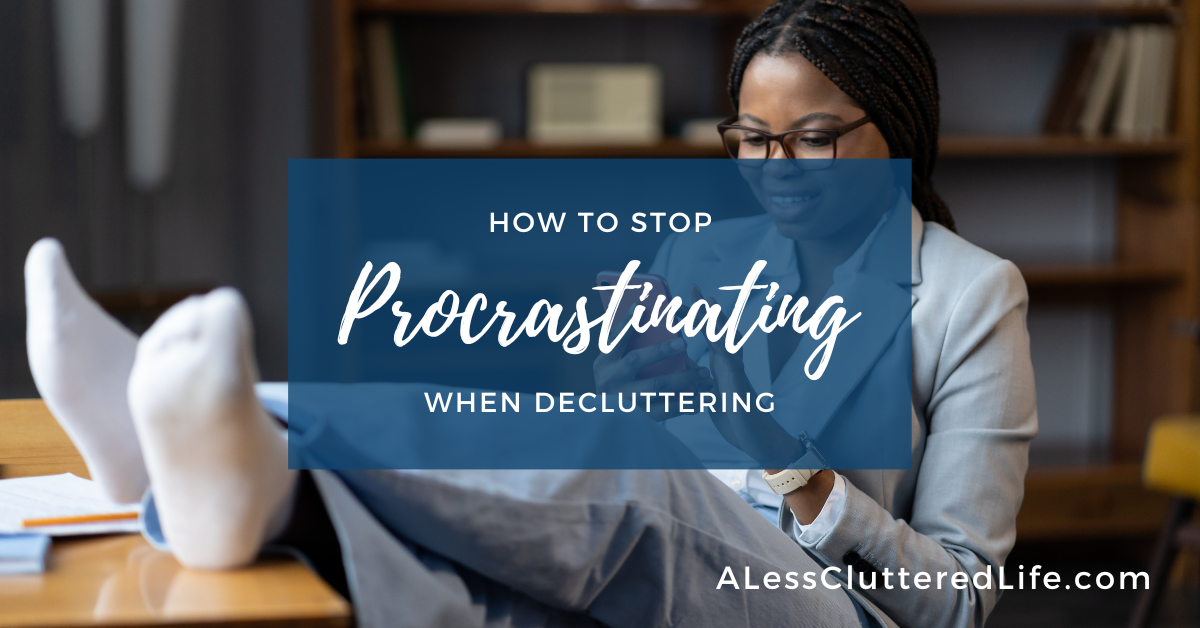
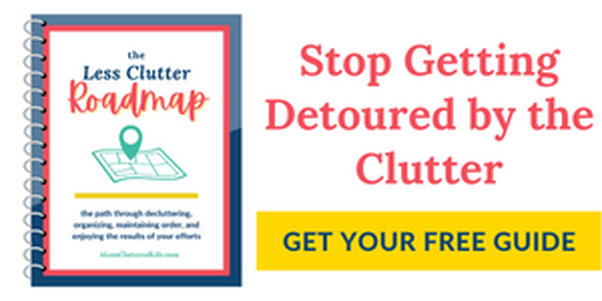
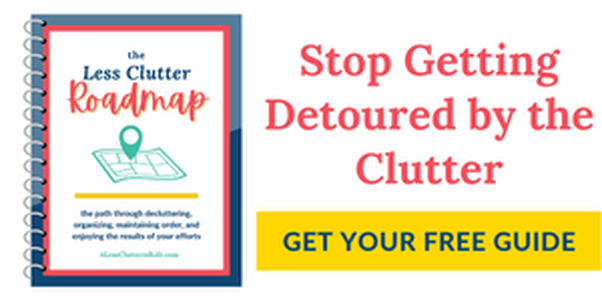
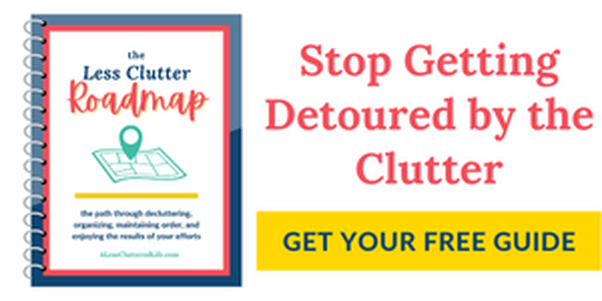



 RSS Feed
RSS Feed
